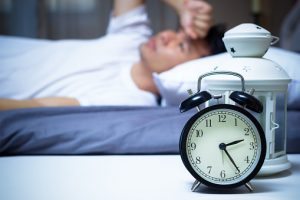 Sleep is essential to our well-being. Although some of us feel like we could achieve so much more had we had the ability to function without sleep, for the most part, we welcome bedtime. Finally, you get to take a break from the hustle of the day. You can dive into the soft bedsheets, rest on your favorite pillow that perfectly assumes the shape of your head, and immerse yourself in the pleasant world of dreams and fantasies. The next morning, you’ll wake up rejuvenated and refreshed.
Sleep is essential to our well-being. Although some of us feel like we could achieve so much more had we had the ability to function without sleep, for the most part, we welcome bedtime. Finally, you get to take a break from the hustle of the day. You can dive into the soft bedsheets, rest on your favorite pillow that perfectly assumes the shape of your head, and immerse yourself in the pleasant world of dreams and fantasies. The next morning, you’ll wake up rejuvenated and refreshed.
Sounds great, doesn’t it?
Advertisement
In reality, however, our sleeping experiences are often somewhat short of being restoring and rejuvenating. You’re looking forward to that desired shut-eye only to discover that your sleepiness has disappeared as soon as you turned off the lights. Or, even worse, you go to bed on time, you fall asleep right away, and then a few hours later, you find yourself wide awake. There are several possible sleep disruptors at play, be it a medical condition, psychological stress, or a questionable lifestyle choice, but the result is that you can’t sleep. And sometimes, you can’t sleep for a few nights in a row.
The many faces of insomnia
When we talk about insomnia, we endow it with a very straightforward meaning: it’s the inability to get a good night’s sleep and is often chronic. But in fact, insomnia comes in a few different shapes and forms, loosely classified by the time of night when it kicks in. As mentioned, you can fall asleep at your bedtime and still suffer from insomnia later at night.
The most common type of insomnia—the one where you go to bed and cannot sleep—is usually due to anxiety and stress. With the lights shut off and nothing to distract your mind, you start mulling over the problems that have been on your mind until you don’t feel the slightest inclination to sleep. Yet, it’s sleep that can help restore your nervous system and give a fresh perspective on your worries the next morning. Therapists suggest writing a diary entry before bedtime so that you go to bed feeling like you’ve let your stresses out. (If you’re not stressed but still can’t sleep at night, it may be simply because your bedroom is not conducive to a restful sleep. Make sure the room is not bright, and keep your devices away from the bed.)
People who suffer from depression often report a different kind of insomnia—late insomnia. You wake up a few hours before your alarm and can’t fall back asleep.
And then there’s middle insomnia, the one where you wake up at night a few hours after falling asleep. If you’re experiencing middle-of-the-night awakenings regularly, you may want to see your doctor to check for two conditions that can cause middle insomnia. One of them is sleep apnea, which wakes you up because your breathing stops. The other one is reflux disease or GERD. In cases of the latter, you wake up because stomach acid is burning your esophagus.
Medications and environmental factors can also take you from your blissful sleep at 3 a.m., but there’s another common cause of middle insomnia—booze.
The paradox of alcohol
If you’ve ever had alcohol, you know that after a while—especially if you’re tired—it makes you sleepy. You come home, you have a glass of wine with your meal, and then you feel like you’re ready for bed. But here’s the paradox. Despite its relaxing effects, alcohol affects your quality of shut-eye and disturbs your sleep schedule.
“The sleep alcohol induces is associated with intense low-wave activity, which is considered to be the deepest, most restorative kind of sleep,” explained Timothy Rhoers, director of sleep disorders research at Henry Ford Hospital in Detroit. You spend your first half of the night in this enjoyable deep sleep. But then comes the time when your body is finished processing the alcohol and you wake up.
Advertisement
Experts speculate once your body is done metabolizing alcohol, your brain releases chemicals that promote wakefulness.
Of course, it all depends on your metabolism, alcohol tolerance, body weight, and the amount of alcohol consumed. However, if you’re suffering from middle insomnia night in and night out, t may be time to stop drinking in the evening.
Related: Insomnia treatments and behavioral therapies to improve sleep
